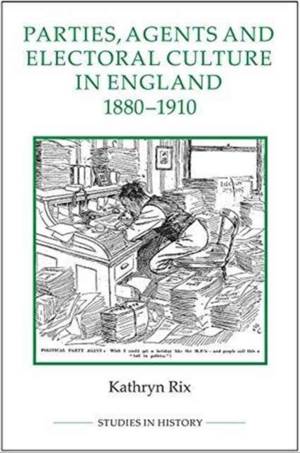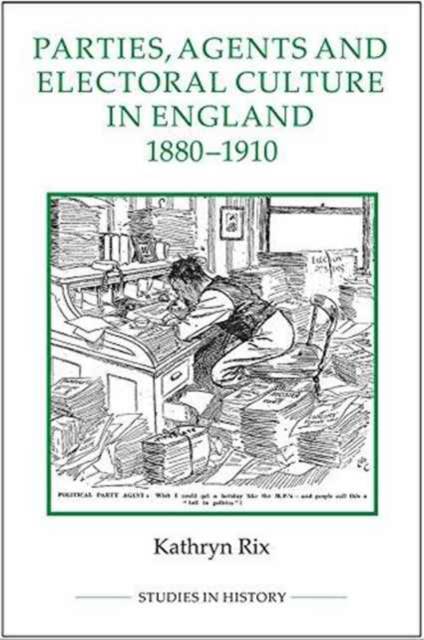
- Retrait gratuit dans votre magasin Club
- 7.000.000 titres dans notre catalogue
- Payer en toute sécurité
- Toujours un magasin près de chez vous
- Retrait gratuit dans votre magasin Club
- 7.000.0000 titres dans notre catalogue
- Payer en toute sécurité
- Toujours un magasin près de chez vous
Description
A study of how the role of party agents grew and became professionalised in local political parties. The electoral reforms of 1883-5 created a mass electorate and transformed English political culture. A new breed of professional organisers emerged in the constituencies in the form of full-time party agents, who handled registration, electioneering and the day-to-day political, social and educational work of local parties; they performed a vital role as intermediaries between politics at Westminster and at grass-roots level, bridging the gap between "high" and "low" politics.
This book examines the agents not only as political figures, but also as men (and occasionally women) determined to establish their status as professionals. It addresses key questions about the nationalisation of electoral politics in this period, demonstrating the importance of understanding the interactions between the centre and the constituencies, and showing that while the agents' professional networks contributed to a growing uniformity in certain aspects of party organisation, local forces continued to play a vital role in British political life. It also provides a fresh perspective on the evolution of the modern British political system, sheddingnew light on debates about how effectively the Liberal and Conservative parties adapted to the challenges of mass politics after 1885. Dr Kathryn Rix is Assistant Editor of the House of Commons, 1832-1945 project at the History of Parliament.
This book examines the agents not only as political figures, but also as men (and occasionally women) determined to establish their status as professionals. It addresses key questions about the nationalisation of electoral politics in this period, demonstrating the importance of understanding the interactions between the centre and the constituencies, and showing that while the agents' professional networks contributed to a growing uniformity in certain aspects of party organisation, local forces continued to play a vital role in British political life. It also provides a fresh perspective on the evolution of the modern British political system, sheddingnew light on debates about how effectively the Liberal and Conservative parties adapted to the challenges of mass politics after 1885. Dr Kathryn Rix is Assistant Editor of the House of Commons, 1832-1945 project at the History of Parliament.
Spécifications
Parties prenantes
- Auteur(s) :
- Editeur:
Contenu
- Nombre de pages :
- 290
- Langue:
- Anglais
- Collection :
- Tome:
- n° 94
Caractéristiques
- EAN:
- 9780861933402
- Date de parution :
- 15-12-16
- Format:
- Livre relié
- Format numérique:
- Genaaid
- Dimensions :
- 156 mm x 234 mm
- Poids :
- 585 g

Les avis
Nous publions uniquement les avis qui respectent les conditions requises. Consultez nos conditions pour les avis.






